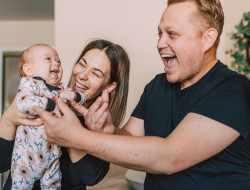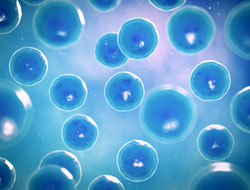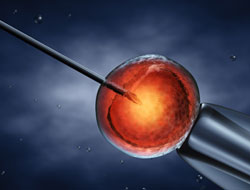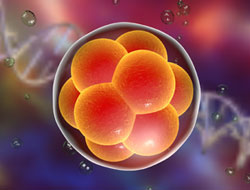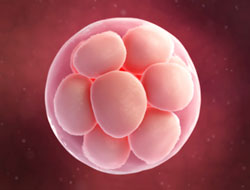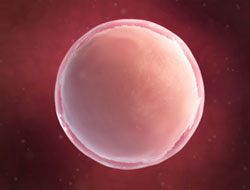
Our fertility treatments
All the fertility treatments that we perform in our fertility clinics.
Our professional commitment is to offer an affordable and high quality assisted reproduction option so that access to technology is not a privilege. Please find below the different assisted reproduction treatments that we offer, all of the highest quality and at equitable and competitive prices.
At IMF Easyfiv we strive to offer the latest assisted reproduction techniques and fertility treatments at a fair cost and within as many families as possible´s hand reach. We believe that infertility is a extremely common health issue in today´s society and we are proud to contribute to its improvement offering high quality care to every couple who wish to fulfill their long-awaited dream of starting a family.
4 key reasons for deciding to undergo fertility treatment in Spain:
1. Spain, European destination for assisted reproduction
Spain is considered one of the best European destinations for fertility treatments, as we are one of the countries with the best success rates.
Why? We have been performing high quality treatments for many years and the legislation in our country has been more open than in other european countries. Our experience backs us up. If you are thinking of having fertility treatment in Spain, do not hesitate to contact us.
2. Single women can undergo fertility treatment.
Unlike other European countries, in Spain it is legal for single women to undergo fertility treatments to form a single-parent family. These women, who decide to become single mothers, can undergo treatments such as artificial insemination (AI), in vitro fertilization (IVF) or, in specific cases, embryo adoption. Ask our medical team which treatment is the most recommended for your specific case!
3. Same-sex female couples can undergo fertility treatment.
Many female couples decide to go to Spain to undergo fertility treatment in order to become mothers, as there are countries in Europe where this is not allowed, but in Spain it is. The possibilities available to these couples to conceive are the following: artificial insemination (AI) and in vitro fertilization (IVF). There is also the ROPA method, available only for married couples, which allows both partners to participate in the pregnancy process; one provides the eggs and these are transferred to the other member of the couple for the gestation of the baby. Ask our medical team which options are most recommendable!
4. Women over 50 can undergo fertility treatment.
In Spain there is no legal age limit for fertility treatments, although the general health of the woman must always be assessed beforehand by a medical team. You can consult your case with our medical team here.
Frequently asked question about fertility treatments
There are many reasons why couples cannot have children: 40% of the cases are attibuted to male reasons (due to causes such as low sperm concentration, low sperm motility, poor morphology...), other 40% of cases are attributed to female reasons (for causes such as endometriosis, polycystic ovary, early menopause...), and the remaining 20% is due to mixed factors (both members of the couple suffer from a fertility problem) or unknown factors, where pregnancy cannot be achieved and the reason is unknown.
Besides, more and more women decide to become single mothers by choice, as well as homosexual couples want to have children of their own. Thus, in view of the need of many women and couples, assisted reproduction clinics were born.
Although each case is completely different, each patient and each fertility problem has an appropriate fertility treatment as a solution. We will analyse the most common ones one by one:
Artificial insemination
Artificial insemination is the simplest fertility treatment. Here, the sperm sample (from the donor or the partner) is processed to improve its vigour and the sperm sample is introduced into the woman's uterus with a fine transfer catheter. In about 10-12 days, a blood test can be performed to confirm pregnancy. It should be noted that artificial insemination is a painless fertility treatment, it is performed directly in the clinic on the same day as ovulation occurs and no anaesthesia is required.
Due to its characteristics, artificial insemination is recommended for those women or couples who have mild fertility problems. And depending on where the problem lies, artificial insemination can be performed with the couple's own sperm or sperm from an anonymous donor.
Homologous Intrauterine insemination
In homologous artificial insemination, a semen sample is used from the male partner, who does not suffer from infertility or has minor fertility problems. It is recommended for young women between 18 and 35 years of age, in good mental and physical health, with no or minor fertility problems, and with a male partner with good sperm quality./p>
Artificial insemination with donor sperm
Artificial insemination with a donor uses a sperm sample from an anonymous donor. It is recommended for young women between 18 and 35 years of age, in good mental and physical health, with no or minor fertility problems, who want to become single mothers or whose male partner suffers from fertility problems or poor sperm quality.
IVF: In vitro fertilization
Vitro Fertilisation is positioned as the most widely used fertility treatment, especially because it has different variations, indicated for the different cases or fertility problems of each woman or couple. In the different fertility treatments that include in vitro fertilisation, the woman is hormonally stimulated and just before ovulation the oocytes are obtained from her ovaries by means of follicular aspiration. It is in the laboratory where the woman's oocytes are brought into contact with the processed semen sample (from the couple or an anonymous donor) in order to obtain fertilised oocytes that become embryos. The embryos obtained are transferred into the woman's uterus in the hope that they will give rise to a successful pregnancy.
IVF process takes longer than artificial insemination process, and the oocyte retrieval is a surgery dependent process. Once the embryos are obtained, their transfer to the uterus is easier, painless and it`s an ambulatory process where there´s no need for sedation, although rest is recommended after it´s been done.
Due to its characteristics, In vitro fertilization is recommended for women or couples with more serious fertility problems, including women who have had a tubal ligation but want to become mothers again. In Vitro Fertilisation can be undertaken by any woman between 18 and 52 years of age who is in good physical and mental health, even if she has a fertility problem.
Homologous in vitro fertilization
If sperm quality of male´s partner is good and the fertility problem lies in the female partner, an homologous in vitro fertilization can be performed using male´s partner sperm sample. The sperm sample is processed to improve its vigour and then is incubated together with the oocytes that have been retrieved from the woman.
Donor sperm In vitro fertilization
When both partners (male and female) suffer from fertility problems, in vitro fertilisation can be performed with a sperm sample from an anonymous donor. This ensures good sperm quality, making the chances of pregnancy higher when the sperm sample is put in contact with the oocytes retrieved from the woman. This fertility treatment is also available for women who want to become single mothers and have a fertility problem.
Egg donation in vitro fertilization
Ovum donation is indicated especially for women over 40 years of age with fertility problems, in which a group of oocytes is obtained from an anonymous donor, compatible with the blood group and phenotypes of the recipient, and a partner´s sperm sample can be used, if the sperm quality is good.
Double donation in vitro fertilization ( Egg and sperm donors)
When both partners have fertility problems, especially if they are over 40 years of age, in vitro fertilisation can be performed with donor oocytes and donor sperm. In these cases, a group of oocytes is obtained from an anonymous donor and a sperm sample from an anonymous donor, compatible with each other and with the recipient. This fertility treatment is also available to women with fertility problems who want to become single mothers.
In vitro fertilization using ICSI (IVF+ICSI)
In Vitro Fertilisation with intracytoplasmic sperm injection (ICSI) is an assisted reproduction technique with a longer laboratory process, indicated when fertility problems are more incompatible with pregnancy or when conventional In Vitro Fertilisation has not been successful. In ICSI process, instead of placing the sperm sample in contact with the oocytes (as in conventional IVF), the most active spermatozoa with normal morphology are selected and introduced one by one by microinjection (ICSI) into each egg obtained.
Mild in vitro fertilization (Mild IVF)
Mild IVF follows the same steps as a conventional IVF treatment, but with a much milder ovarian stimulation. It is indicated for women between 18 and 35 years of age who, even with fertility problems, have a good ovarian reserve, and women up to 45 years of age can have access to this fertility treatment.
In vitro fertilization for female homosexual couples (ROPA Method)
ROPA method is a fertility treatment that arised in order to procure female homosexual couples with their right to become mothers in a process where both can participate. The process is the same as in vitro fertilisation: the sperm sample is obtained from an anonymous donor, the oocytes for fertilisation are taken from one of the women in the couple and the fertilised oocytes are transferred into the other woman. Therefore, one of the women of the couple can provide her own eggs, and the other is the one who finally gestate the future baby. This fertility treatment is available to all legally married women in Spain, in good physical and mental health.
Embryo adoption or transfer of the own embryos
Sometimes, in IVF, we obtained more embryos than are going to be transferred. Those surplus embryos must be crypreserved for own use or donation, this preservation is made through vitrification in the fertility clinic. Therefore, if a couple is unable to conceive in the first IVF attempt,a second cycle can be carried out with a surplus embryo which, after thawing, will be directly transferred into the woman´s uterus. If the couple achieves pregnancy and there are still surplus embryos that have not been transferred, they can be donated so that another woman or couple can use these to be directly transferred into the uterus of the recipient woman.
This fertility treatment is indicated for women aged 18 to 52 with fertility problems who are in good mental and physical health.
The importance of fertility treatments
Nowadays, WHO stimates that a 17,5% of the population have fertility problems. In other words, more than one in six couples have difficulties conceiving. In IMF EasyFIV fertility clinics we try to help every patient to fulfil their dream of becoming parents, finding the fertility problem that prevents them from conceiving and approaching it with the most appropriate fertility treatment for each case.
However, undergoing fertility treatment is a very important decision due to the high cost of fertility treatments, which many women and couples sometimes cannot afford.
That´s why at IMF Easyfiv we strive to make the latest assisted reproduction techniques and fertility treatments available at a fair price and within the reach of as many families as possible. We believe that infertility is a health problem of great significance in today's society and we are proud to contribute to its improvement by offering high quality medicine, without having to pay extra, to all those couples who wish to fulfil their long-awaited dream of starting a family.
Seek fertility specialist advice to discuss your fertility concerns
Although each fertility treatment may be indicated for a specific type of patient and fertility problem, each case is completely different from another, and there is no rule that decides which fertility treatment is most suitable for each type of woman or couple. Specialists at the assisted reproduction clinics are the ones who have to study each case and fertility problem, with a personalised and very specific diagnosis for each person. In short, it will be the gynaecologist or medical team who will confirm the best fertility treatment for you.
If you think there is a fertility treatment that would be best for you, you can ask for a free first visit with our team of specialists so they can study your fertility problem and confirm which fertility treatment is best for you. Our medical team will be at your side to help you at all times in the process of becoming a mother.
Madrid Fertility clinic C. de Joaquín María López, 44, 28015 Madrid
Barcelona Fertility clinic C/ Horaci, 9, bajos. 08022 Barcelona

